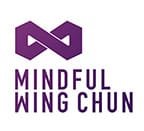There is an argument in Physics about whether our lives are “Pre-determined” or are they subject to “Chaos” and the “Incompleteness” Theorem’s.
What’s interesting about all this, is that what we are experiencing in our everyday Wing Chun is actually a hot debate in quantum physics.
The “Pre-determined’s” argue that everything is pre- organized.
In 1985 Dr Ben Libet proved that the brain actually makes decisions before we are conscious of that decision.
The brain then tricks consciousness to believe that the idea was consciously initiated.
From this they have assumed that Free Will is not real.
The “Chaos” and “Incompleteness” argument, say that everything rises out of randomness including consciousness through which we have free choice or “Free Will”.
It may turn out that inside the neuron, quantum processes dominate.
If neurons are subject to quantum physics then consciousness is subject to “Chaos” and the “Incompleteness” theorems.
It maybe because of these quantum processes that “Free Will” does exists.
Thereby conflicting with the “Pre-determines” argument of no “Free Will”.
The “Chaos” theory, which simply stated, is the “butterfly effect”. In that random events cant produce a deterministic future.
Gödel’s “Incompleteness” theorem, simply says that there are problems that no machine can solve. i.e. We need “Intuition” to solve problems.
Perhaps “Free Will” operates at a level that is subconscious. Perhaps “Free Will” is more complex than conscious thought is able to handle. Perhaps “Free Will” is a “feeling”, an “instinct”.
That’s certainly the feeling I get in my Wing Chun.
How can I apply this information to my Wing Chun practice?
The idea of a deeper part of the mind controlling my movement gives me trust to let go, just that little bit more. The mind is very very smart, (If the a human brain was to be uploaded onto the internet, it would take up the entire internet), yet it also dumbs itself down to keep our conscious mind or egos and our avoidance of fear satisfied. These are basic survival techniques of the brain that in modern society we no longer need. The conscious brain does not want to take risks. So by taking control consciously we are creating fear.
By letting go of a need to control, by letting go of fears, I’m able to just feel my Wing Chun and trust in it that my body will move with grace as required. The only inhibition is me myself, my conscious mind continually interrupting.
I want to dispel all fears and let go as though I’m falling into a cradle of feelings and intuition.
Observation being the key, I want to feel the depth of my observation, without any need to act or judge or predict. Trusting in the “feeling” to move. Observing it and feeling what I want, letting my body have no boundaries, letting the energy that is both in me and around me move, before my body does and observe the physical following in its path, all centred around the fine line that runs through the spine.
It is through Wing Chun that one is able to experience the subtleties of the mind.
When in the Wing Chun state, one is ideally not subject to conscious thought, you are in a place of no fear, however one still feels that they can move in any direction that they want and I think that is “Free Will “ at a deep level.
It is in the confidence of knowing that you still have Free Will and that it operates at the Wing Chun level, that we are able to accept the idea of letting go more.
When we experience Wing Chun, we observe our body in action. As though it has already decided what’s going to happen. I think the idea of conscious thought having free will has too much lag. Conscious thought comes with future thought, judgement, and its result orientated.
In Wing Chun it should feel like we can move any part of the body in any direction all of the time as you “feel” you should move, not as you “think” you should move.
We should “feel” the freedom of choice to move and then “observe” the movement.
Keven Tate
Quotes taken from “The future of the mind” by Michio Kaku

